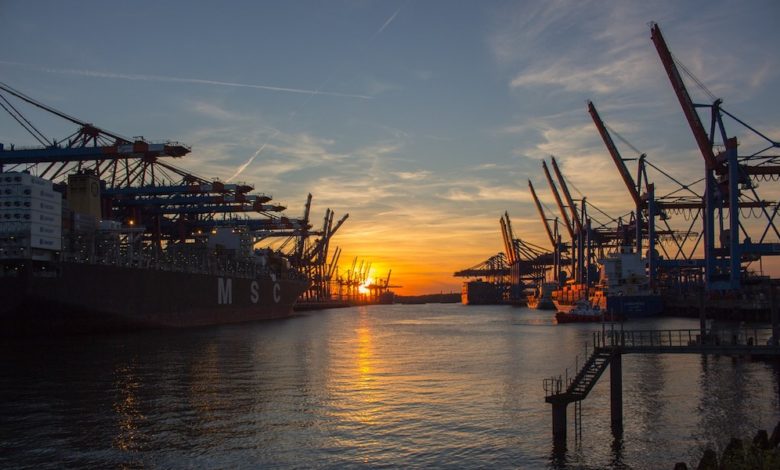Planes and ships can’t get a free pass at COP climate summit

The COP 26 Climate Summit can become a success by putting paid to a dangerous myth that is undermining the 1.5°C goal: that the international shipping and aviation sectors are excluded from the efforts of the Paris Agreement. As a new legal analysis demonstrates that these sectors are firmly within the agreement, COP 26 must free up countries to make aviation and shipping part of their solution to the climate crisis, writes Estelle Dehon from Cornerstone Barristers.
The international aviation and shipping sectors are together responsible for around 5% of all climate-heating greenhouse gases emitted globally every year. This is more than the annual emissions of large, industrialised countries like Japan or Germany, and it keeps growing. If left uncontrolled, aviation and shipping emissions could amount to almost 40% of all CO2 emissions in 2050.
Despite these alarming predictions, very little effort has been made to do anything about it. This is in part due to a prevalent myth that international aviation and shipping are not part of the Paris Agreement. This confusion dates back to the transition from the Kyoto Protocol to the Paris Agreement and has been exploited by the industry’s lobby groups ever since.
But a new legal analysis, commissioned by the Brussels-based think-tank Transport & Environment in October 2021, is clear: states have an obligation to include shipping and aviation emissions in their Paris Agreement climate plans.
In 1997, the Kyoto Protocol decided that countries should work through two international bodies to tackle aviation and shipping emissions: the International Civil Aviation Organization (ICAO) and the International Maritime Organization (IMO).
Both organisations have regrettably failed to deliver as emissions from these sectors are far higher 24 years later, with no peak in sight. The IMO’s recently agreed climate target of halving shipping emissions by 2050 ignores the Paris Agreement timeline and its policies mostly play in the industry’s interests. Similarly, ICAO’s global carbon offsetting scheme, Corsia, will have little to no impact on curbing aviation emissions.
The Paris Agreement changed this failed set-up by shifting the responsibility from the organisations onto the countries themselves. Countries are now required to reduce all economy-wide emissions through their national climate plans, called Nationally Determined Contributions (NDCs). These serve as roadmaps towards reducing their human-made emissions with the aim of keeping global warming well below 2°C, with efforts to limit the rise to 1.5°C. By signing the Paris Agreement and accepting the obligation to meet these global temperature goals, countries committed to cover all emissions, including international aviation and shipping, in their climate plans.
This fundamental shift was not left without enemies, with the industry trying to undermine it ever since. In 2017, a board member of the lobby group International Chamber of Shipping (ICS) said that the Paris Agreement was voluntary and that regulations were already tight. Similarly in 2020, the ICS wrote that “Emissions from international shipping are not required to be covered by the Nationally Determined Contributions for CO2 reduction made by EU States under the Paris Agreement on climate change.”
As a result, many governments are confused about whose responsibility it is to regulate international aviation and shipping emissions under the Paris Agreement.
It would be unfair not to recognise that some countries are taking some action to address aviation and shipping emissions. The EU has included emissions from all departing flights in its NDC since 2020, and has recently proposed to include international shipping emissions in the block’s Emission Trading Scheme. Similarly, the UK is legislating to includeinternational aviation and shipping in its carbon budget. But given the scale of the problem, and the fact that a sound solution in the form of the Paris Agreement is already on the table, we need all countries on board.
The COP26 in Glasgow represents the perfect opportunity to put an end to the exclusionary myth and reaffirm that international aviation and shipping form part of national climate plans. UK and EU diplomats are best positioned to work with their international counterparts and encourage other countries to follow their legal obligation under the Paris Agreement to keep alive the possibility of limiting global temperature rise to 1.5°C.

When you say shipping emissions must be regulated by countries, do you mean the country of the beneficial ownership of vessels or Flag states? Shipping is a shady business, I am not arguing whether this is right or wrong, but it is a fact. If the individual country regulation is preferred, this will get us down to a rabbit hole, given the current state of affairs within shipping.